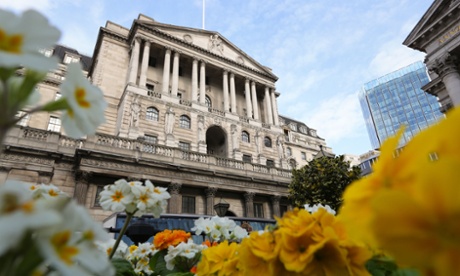The Bank of England is making a habit of pulling surprises. In November, financial markets were taken aback when Threadneedle Street kept interest rates on hold at 0.1%. This time they were caught on the hop by the decision to raise them to 0.25%.
It’s not hard to see why traders in the City have been left scratching their heads given that the explanation for doing nothing in November – uncertainty about the real state of the economy – seems to apply just as much to today’s circumstances.
Last month the big imponderable was how the labour market had stood up to the end of the government’s furlough scheme; this time it was the impact of the Omicron variant.
So what explains a change of stance that resulted in only one member of the nine-strong monetary policy committee voting for the status quo on interest rates?
Firstly, since the MPC deliberated in November there have been two sets of labour market figures, neither of which have shown much impact from the end of the furlough scheme. The number of people on payrolls has continued to rise; job vacancies are running at record levels.
Secondly, the Bank has become spooked by rising inflation. Since the start of the year, Threadneedle Street has consistently underestimated price pressures and is now anticipating a peak of 6%, three times the official 2% target. Last month it was pencilling in 5%, and while price pressures are expected to diminish from the spring onwards, the MPC has decided it can delay action no longer.
The MPC took its decision in full knowledge of the spread of Omicron, which it said had the potential to lead to “a very high number of infections over a very short period”. What’s more, it accepted the new variant of coronavirus would weigh on the economy in the short term.
But for now the Bank seems to be assuming that the impact of Omicron will be to lead to still higher inflation, while having only a modest and temporary impact on output. That’s because tougher restrictions on socialising shift spending patterns away from face-to-face services and towards goods, where supply-chain bottlenecks have been responsible for a surge in prices.
The Bank does not have to hit the government’s 2% target at all times. It can tolerate a significant overshoot (or undershoot) if it believes precipitate action would cause damage to the economy.
On this occasion it has decided the threat of inflation becoming embedded is greater than the risk to growth. That judgment will come under intense scrutiny in the coming weeks, and if things get really bad the Bank will come under pressure to bring rates down again.
In the meantime, the rate rise has made clear that the Bank sees its main task to be hitting the inflation target. With the Bank currently anticipating that borrowing costs will need to rise further next year, the onus is now on Rishi Sunak to support the economy through what looks likely being a testing few months.











